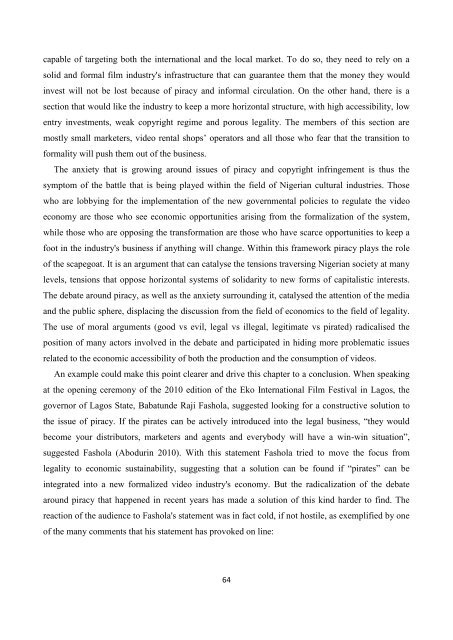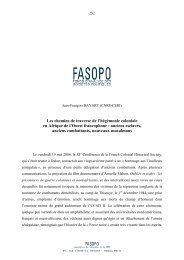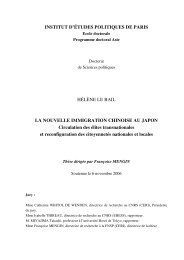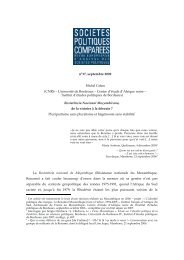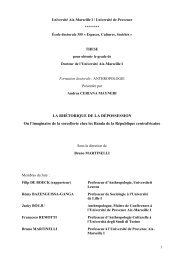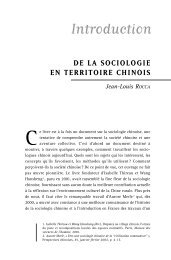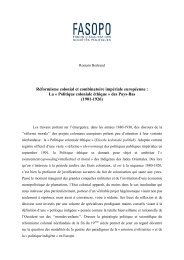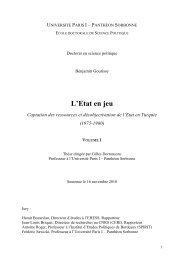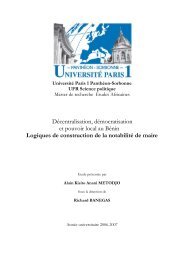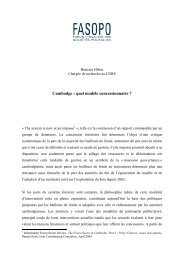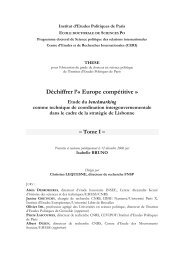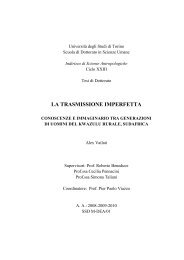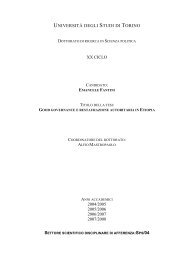Create successful ePaper yourself
Turn your PDF publications into a flip-book with our unique Google optimized e-Paper software.
capable of targeting both the international and the local market. To do so, they need to rely on asolid and formal film industry's infrastructure that can guarantee them that the money they wouldinvest will not be lost because of piracy and informal circulation. On the other hand, there is asection that would like the industry to keep a more horizontal structure, with high accessibility, lowentry investments, weak copyright regime and porous legality. The members of this section aremostly small marketers, video rental shops’ operators and all those who fear that the transition toformality will push them out of the business.The anxiety that is growing around issues of piracy and copyright infringement is thus thesymptom of the battle that is being played within the field of Nigerian cultural industries. Thosewho are lobbying for the implementation of the new governmental policies to regulate the videoeconomy are those who see economic opportunities arising from the formalization of the system,while those who are opposing the transformation are those who have scarce opportunities to keep afoot in the industry's business if anything will change. Within this framework piracy plays the roleof the scapegoat. It is an argument that can catalyse the tensions traversing Nigerian society at manylevels, tensions that oppose horizontal systems of solidarity to new forms of capitalistic interests.The debate around piracy, as well as the anxiety surrounding it, catalysed the attention of the mediaand the public sphere, displacing the discussion from the field of economics to the field of legality.The use of moral arguments (good vs evil, legal vs illegal, legitimate vs pirated) radicalised theposition of many actors involved in the debate and participated in hiding more problematic issuesrelated to the economic accessibility of both the production and the consumption of videos.An example could make this point clearer and drive this chapter to a conclusion. When speakingat the opening ceremony of the 2010 edition of the Eko International Film Festival in Lagos, thegovernor of Lagos State, Babatunde Raji Fashola, suggested looking for a constructive solution tothe issue of piracy. If the pirates can be actively introduced into the legal business, “they wouldbecome your distributors, marketers and agents and everybody will have a win-win situation”,suggested Fashola (Abodurin 2010). With this statement Fashola tried to move the focus fromlegality to economic sustainability, suggesting that a solution can be found if “pirates” can beintegrated into a new formalized video industry's economy. But the radicalization of the debatearound piracy that happened in recent years has made a solution of this kind harder to find. Thereaction of the audience to Fashola's statement was in fact cold, if not hostile, as exemplified by oneof the many comments that his statement has provoked on line:64


